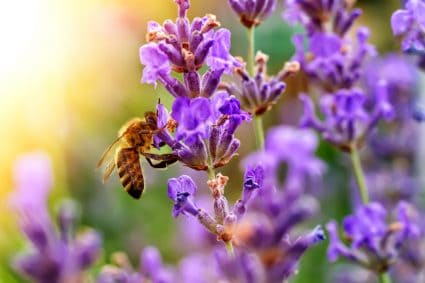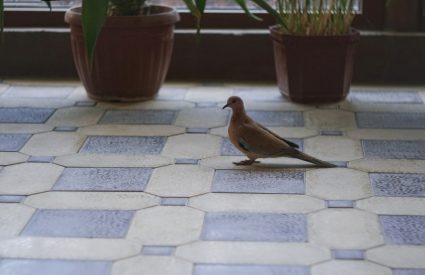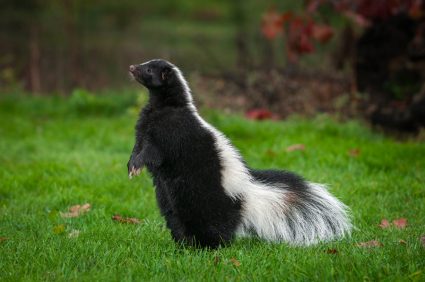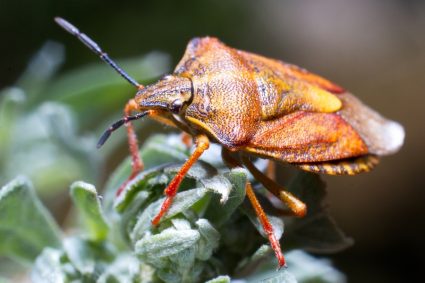
Skunks, with their distinctive black and white coloring and notorious defensive spray, are common visitors to our gardens and neighborhoods. But why do skunks come around? This in-depth article explores the reasons, from their preferred environments and food sources to the influence of human activity and seasonal changes.
Skunks are attracted to residential areas due to the availability of food and shelter. They feed on insects, small mammals, and human-generated food sources like birdseed, pet food, and garbage. Skunks also prefer ground-level habitats where they can easily dig and burrow, often making homes under structures like porches, decks, and sheds. Human activity and seasonal changes also influence skunk behavior and movements.
What Attracts Skunks to Residential Areas?
Skunks are highly adaptable creatures that can thrive in various environments, including grasslands, forests, farm fields, and urban areas. They typically live within two miles of a water source, occupying wooded areas, deserts, plains, and agricultural lands.
What draws them to these environments? The availability of food and shelter. As omnivores, skunks feed on insects, small mammals, nestling birds, eggs, fruits, berries, reptiles, and some green vegetation. They are also attracted to human-generated food sources like birdseed, pet food, and garbage. These environments provide ample opportunities for skunks to find food and create dens for shelter and protection.
Skunks are not skilled climbers, so they prefer ground-level habitats where they can easily dig and burrow. They often make their homes in abandoned burrows, hollow logs, brush piles, and under structures like porches, decks, and sheds.
Human activity also plays a significant role in attracting skunks. They are drawn to garbage, pet food left out at night, and denning sites such as wood and rock piles, elevated sheds, and openings under concrete slabs, porches, and crawl spaces. Habitat loss and fragmentation due to human activities can lead to an increase in skunk populations.
How Seasonal Changes Affect Skunk Behavior
Seasonal changes significantly affect skunks’ behavior, particularly their feeding habits. During spring and summer, skunks primarily feed on insects, grasshoppers, bees, beetles, beetle larvae, and crickets. In fall and winter, they consume more plant materials, such as fruit, nuts, birdseed, and pet food.
Potential Dangers Posed by Skunks
Despite their ecological benefits, skunks pose several potential dangers. They can carry and transmit diseases such as rabies, distemper, histoplasmosis, and salmonella. They can introduce parasites to your property, destroy plants and gardens, and cause property damage by digging holes and chewing through materials.
Skunks can also pose a threat to pets due to their defensive spray, which can cause discomfort and, in rare cases, can be potentially fatal if a person or pet is allergic.
Preventative Measures to Deter Skunks
To deter skunks from your property, consider the following preventative measures:
- Remove food sources: Secure trash cans, feed pets indoors, and clean up fallen fruits or vegetables in your garden.
- Eliminate potential shelters: Seal off spaces beneath porches and decks and remove piles of wood or debris.
- Install motion-activated lights or sprinklers: Skunks are nocturnal and tend to avoid bright lights and sudden movements.
- Use repellents: Both homemade and commercial repellents can be effective.
- Install fencing: Skunks are poor climbers, so a short metal fence can help keep them out of your garden.
- Use predator urine: This can help mark your garden and discourage skunks.
If you need to remove a skunk from your property, consider using humane catch-and-release traps. Always check your local and state laws regarding the trapping of skunks before proceeding. If these methods don’t work, consider contacting a professional for humane pest removal.
Conclusion
Understanding why skunks come around can help you take the necessary steps to deter them and protect your property. However, remember that skunks play essential roles in our ecosystems, and any interactions should prioritize their safety and wellbeing.
Frequently Asked Questions
What are some signs of a skunk infestation?
Signs of a skunk infestation include noticing a strong odor, spotting dug up lawn or garden areas, and observing skunk tracks, which are unique due to their five-toed feet.
What time of day are skunks most active?
Skunks are most active during the night as they are nocturnal creatures. They typically begin their foraging activities at dusk.
What should I do if my pet gets sprayed by a skunk?
If your pet gets sprayed by a skunk, you should immediately wash them with a skunk odor removal shampoo or a homemade solution of 1 quart hydrogen peroxide, 1/4 cup baking soda, and 1 teaspoon liquid soap. Avoid getting the solution in your pet’s eyes, ears, or mouth.
Are skunks aggressive?
Skunks are generally not aggressive and prefer to avoid confrontations. However, they will spray their strong, foul-smelling defensive secretion when they feel threatened or cornered.
How long does skunk smell last?
Skunk smell can last for days to weeks, depending on the conditions. The odor tends to linger longer on porous materials and in humid conditions.
What is the lifespan of a skunk?
In the wild, skunks can live up to seven years. However, many skunks do not survive their first year due to diseases, parasites, and human activity. In captivity, they can live up to 10 years.











